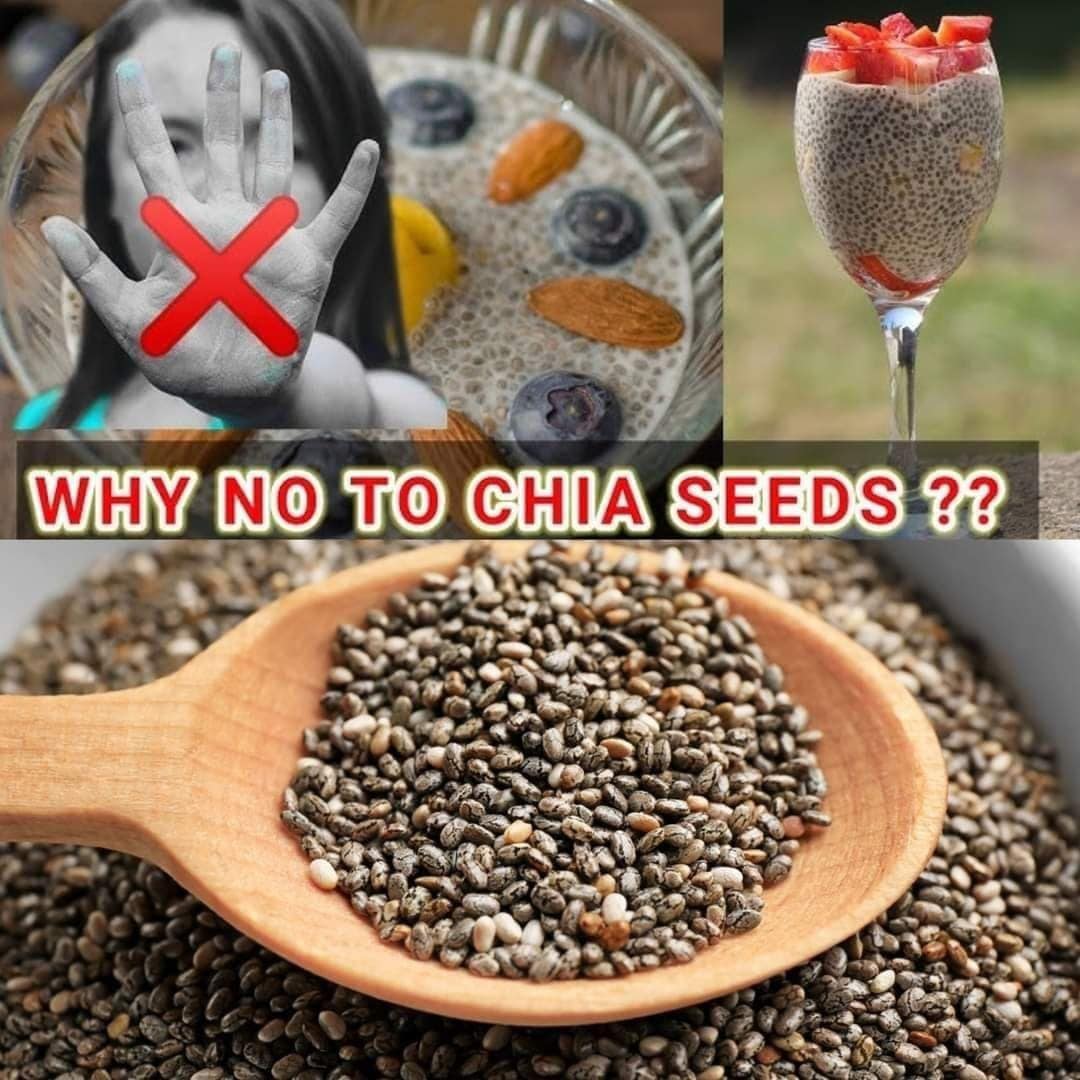ADVERTISEMENT
3. Interference with Medications
Chia seeds are known for their ability to lower blood pressure and blood sugar levels, which is beneficial for many people. However, for those taking medication for high blood pressure or diabetes, consuming chia seeds in large quantities may enhance the effects of the medication, leading to a potential risk of low blood pressure or hypoglycemia (low blood sugar).
If you are on any medications, especially those for blood pressure, diabetes, or blood-thinning medications, it’s a good idea to consult your doctor before incorporating chia seeds into your diet. This will help ensure that chia seeds won’t interfere with your medication or lead to unwanted side effects.
4. Possible Allergic Reactions
While rare, some individuals may be allergic to chia seeds. Symptoms of an allergy can include itching, swelling, difficulty breathing, or gastrointestinal distress. If you’ve never eaten chia seeds before, start with a small amount to see how your body reacts.
If you experience any signs of an allergic reaction, discontinue use immediately and seek medical attention if necessary.
5. Caloric Density
Chia seeds are nutrient-dense, but they are also relatively high in calories. A 1-ounce (28g) serving contains around 137 calories, which can add up if you consume large portions. While the calories come from healthy fats, protein, and fiber, it’s still important to consume chia seeds in moderation if you’re watching your caloric intake.
How to Safely Incorporate Chia Seeds Into Your Diet
Chia seeds can be a healthy addition to your diet when consumed in moderation and prepared properly. Here are some tips for safely incorporating them into your meals:
- Soak Before Eating: Always soak chia seeds before eating them to avoid the choking hazard and help them digest more easily. Simply add them to water, milk, or a liquid of your choice and let them sit for at least 20 minutes. For recipes like chia pudding, allow them to soak overnight in the refrigerator.
- Start Small: If you’re new to chia seeds, start with a small amount (1 tablespoon per day) to see how your body responds, and gradually increase the serving size as your digestive system adjusts.
- Hydrate Well: Because chia seeds absorb a significant amount of liquid, it’s important to drink plenty of water when consuming them to avoid dehydration and digestive discomfort.
- Mix with Other Foods: Chia seeds can be added to smoothies, yogurt, oatmeal, baked goods, or salads. Mixing them with other ingredients can help balance out the high fiber content and make them easier to digest.
- Monitor Your Health: If you are taking any medication or have any underlying health conditions, consult your healthcare provider before adding chia seeds to your diet to ensure they are safe for you.
Conclusion: Are Chia Seeds Bad for You?
In general, chia seeds are not bad for you—they are highly nutritious and can offer numerous health benefits, from boosting heart health to aiding digestion. However, like any food, they should be consumed correctly and in moderation to avoid potential risks such as choking, digestive discomfort, or interactions with medications.
By soaking chia seeds before eating, starting with small portions, and drinking plenty of water, you can safely enjoy their many benefits. So, if you’re looking to add a nutrient-packed superfood to your diet, chia seeds are a great choice—just be mindful of how you use them.
As with any food, balance and moderation are key. When used appropriately, chia seeds can be a fantastic addition to your healthy eating plan!
ADVERTISEMENT
